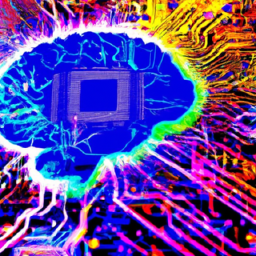Cognitive Computing: The Next Big Thing in Digital Marketing
When it comes to digital marketing, staying ahead of the game is crucial. With ever-evolving technology and changing consumer behaviors, it’s important for businesses to adapt and find innovative ways to reach their target audience. One such innovation that has the potential to revolutionize digital marketing is cognitive computing.
What is Cognitive Computing?
Cognitive computing is a branch of artificial intelligence (AI) that aims to mimic human thought processes. It uses machine learning algorithms and natural language processing to understand, reason, and learn from data in a way that is similar to how a human would.
While traditional computing systems are programmed with specific instructions, cognitive computing systems have the ability to learn and improve continuously, making them more adaptable and intelligent.
The Potential Impact on Digital Marketing
So, how can cognitive computing change the landscape of digital marketing? Let’s dive into some of its potential impacts:
1. Enhanced Personalization
Personalization has become a key aspect of successful digital marketing strategies. By analyzing vast amounts of data, cognitive computing can help businesses gain a deeper understanding of individual customers and deliver tailored experiences.
For example, by analyzing past purchase history and online behavior, cognitive computing can anticipate a customer’s needs and offer personalized product recommendations or targeted advertisements. This level of personalization can greatly improve customer satisfaction and increase conversion rates.
2. Improved Customer Service
Cognitive computing can also revolutionize customer service by providing instant and personalized support. Chatbots powered by cognitive computing can understand and respond to customer inquiries in a natural and human-like manner.
These chatbots can analyze the context of a conversation, recognize the intent behind a customer’s query, and provide relevant information or assistance. This not only saves time and resources for businesses but also ensures that customers receive timely and accurate responses.
3. Smarter Data Analysis
Data is the driving force behind effective digital marketing. Cognitive computing can help businesses make sense of vast amounts of data and extract actionable insights.
By using algorithms that can learn and adapt, cognitive computing can identify patterns, trends, and correlations in data that may go unnoticed by human analysts. These insights can be used to optimize marketing campaigns, identify new target audiences, and make data-driven decisions.
4. Enhanced Content Creation
Cognitive computing can also play a significant role in content creation. By analyzing customer preferences, browsing behavior, and social media interactions, cognitive computing systems can generate content that is highly relevant and engaging to specific target audiences.
Whether it’s personalized blog articles, social media posts, or email newsletters, cognitive computing can assist in crafting content that resonates with customers on a deeper level, improving engagement and brand loyalty.
In Conclusion
Cognitive computing has the potential to revolutionize digital marketing by enhancing personalization, improving customer service, enabling smarter data analysis, and enhancing content creation. By harnessing the power of AI and machine learning, businesses can create more relevant and effective marketing strategies, ultimately leading to increased customer satisfaction and improved business outcomes.
As technologies continue to advance, it’s important for marketers to stay informed about the latest trends and innovations. Embracing cognitive computing in your digital marketing strategy can give you a competitive edge and pave the way for future success in the ever-evolving digital landscape.











